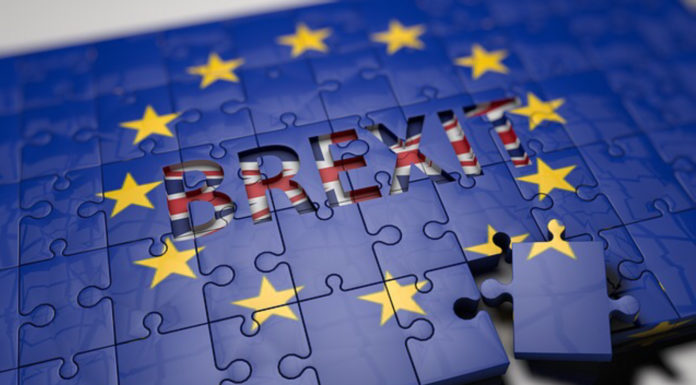As Sudan descends into what has become the world’s worst humanitarian catastrophe, there are fresh calls on the international community to end what one political group in the EU parliament calls its “shameful inaction” and for leaders “to prioritize this tragic crisis.”
After two and a half years of fratricidal conflict, the situation in Sudan has reached unprecedented levels of horror.
Over 150,000 people have been killed, and millions of civilians have been forced to flee their towns and villages, almost 50,000 in recent days alone.
Survivors report systematic war crimes: summary executions of civilians, widespread rape, looting, kidnappings, and attacks on humanitarian workers.
The city of al Fashir in Sudan is a 'crime scene' and the 'epicentre of suffering in the world', @UNReliefChief tells @SkyYaldaHakim ⬇️
Paramilitaries controlling the city are accused of atrocities including mass executions and sexual violence.https://t.co/o7BlJV67Uc pic.twitter.com/cW7lUJ0c4R
— Sky News (@SkyNews) November 17, 2025
The Renew Europe group in the EU parliament says that those involved “must be held accountable for escalating this civil war.” MEP Hilde Vautmans (Open-VLD, Belgium), Renew Europe spokesperson on foreign affairs, said Sudan is “enduring one of the gravest human tragedies of our time.”
Vautmans added, “When children and women are raped as a weapon of terror, when famine is engineered and humanitarian aid is blocked, the world cannot remain neutral. Ending this horror requires more than words: it demands an immediate ceasefire, full humanitarian access, and targeted sanctions on the commanders responsible, Burhan, Hemedti and their networks. Protecting civilians, supporting survivors, and securing justice is our legal and moral obligation”.
Her comments are echoed by another MEP, Barry Andrews (Fianna Fáil, Ireland), who is chair of the committee on development. He stated: “We are now two years into a war that has killed over 150,000 people, provoked a famine and displaced more than 14 million people. This is what happens when the EU and other key international players fail to invest in states. Sudan’s chance at democracy was missed in 2019, with the EU failing to invest in peace & reconciliation when it mattered most.”
Andres adds, “Fragile states will always require our help. If we fail to step up, we will be doomed to watch on as innocent civilians are slaughtered in their thousands, as is happening now.”
Further comment on the crisis comes from Charles Goerens (DP, Luxembourg), Renew coordinator for the committee on development. He added : “What we are witnessing in Sudan is a reminder of what happens and what will continue to happen when the world turns its back on the weakest of the global community. Beyond the urgent need to stop the violence, the international community must launch an independent investigation into the war crimes committed and hold to account those who fuel this conflict.
“At the same time, only continued investment in development cooperation and humanitarian aid can help to prevent such tragedies in the first place and help people survive when they occur. Europe must not waver in its commitment to global solidarity — this is both a moral duty and a strategic necessity to foster stability and human dignity.”
Sudan is one of Africa’s leading gold producers, with deposits across the northeast, centre and the south.
Since the war began, control over gold mines and trade routes has become a critical source of funding for both sides.
Read more: https://t.co/NLDrcmZRU7 pic.twitter.com/ZXvrSxXAZY
— Al Jazeera English (@AJEnglish) November 22, 2025
Jan-Christoph Oetjen (FDP, Germany), Renew PAC Co-President, endorses such views, saying, “The EU can no longer ignore the grave violations of international humanitarian law in Sudan which led to one of the worst humanitarian crises of our time. “Millions are in dire need for immediate assistance.
“As the European Parliament, we have the political and moral obligation to speak up and demand an end to the violence in Sudan. We need to step up diplomatic efforts and play an active role in the peace process by enforcing a weapons embargo and by pushing for humanitarian access to reach millions that are affected by the brutal conflict.”
More comment on the tragic situation in Sudan comes from Willy Fautré, director of Human Rights Without Frontiers, a respected and well established Brussels-based rights group.
He said, “The Rapid Support Forces (RSF), part of Sudan’s Tasis Alliance, has taken control of El-Fasher. The defeat for the Sudanese Armed Forces (SAF) means that the entire Darfur region is now under RSF control, giving the RSF strategic leverage in negotiations.
“Capturing El-Fasher consolidates RSF dominance across all five Dafur states, severs the last military foothold of the SAF in the region, and opens up direct logistical corridors for RSF supply routes. The control of El Fasher gives the RSF undisputed dominance over Darfur. It also further secures a logistical corridor to Libya for arms and fuel, and allows the redeployment of RSF forces to the main front lines,” he said.
He added, “Peace is not for tomorrow.”
— HRWF International (@HRWFint) November 19, 2025
Disclaimer: www.BrusselsReport.eu will under no circumstance be held legally responsible or liable for the content of any article appearing on the website, as only the author of an article is legally responsible for that, also in accordance with the terms of use.













